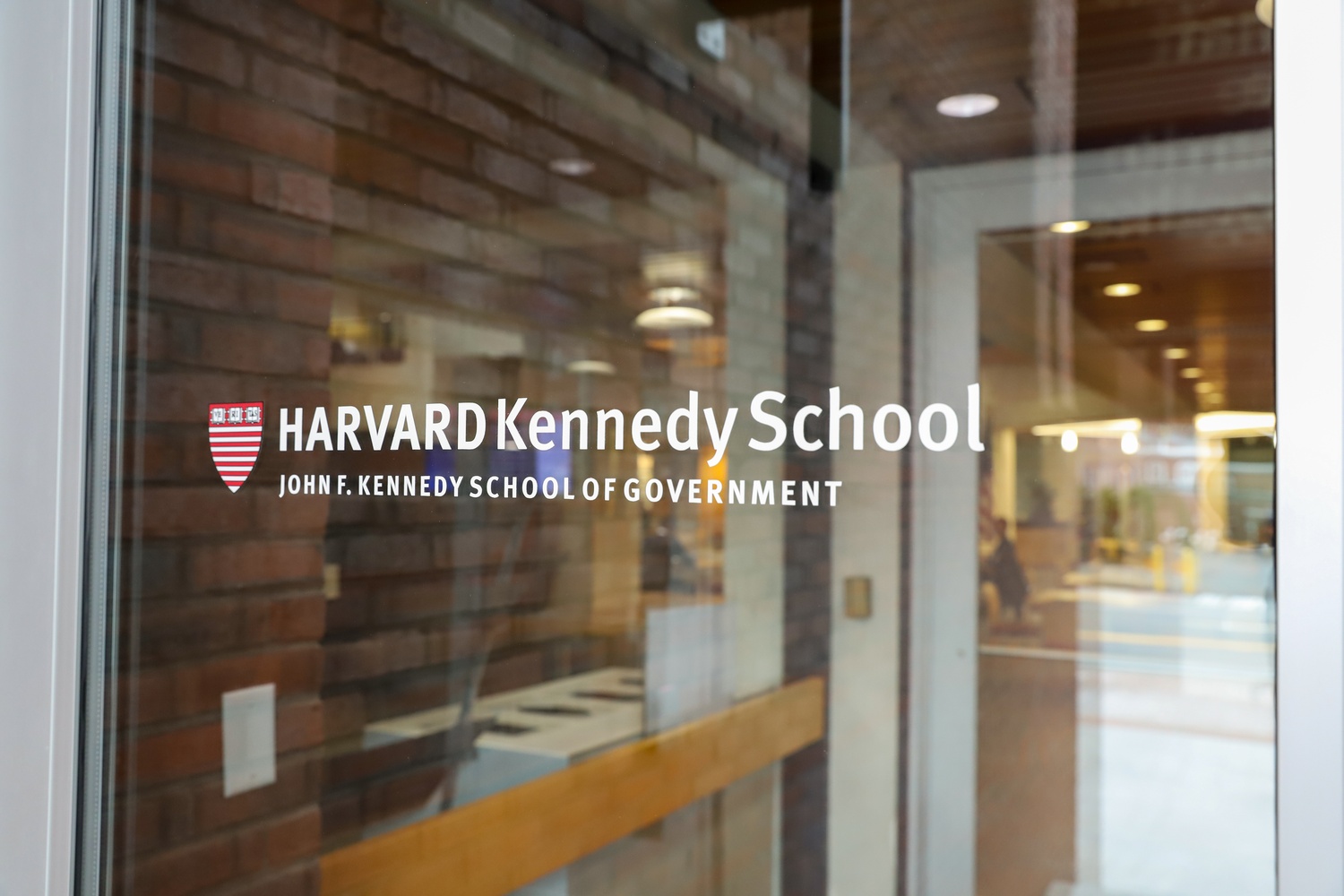
News
Summers Will Not Finish Semester of Teaching as Harvard Investigates Epstein Ties

News
Harvard College Students Report Favoring Divestment from Israel in HUA Survey

News
‘He Should Resign’: Harvard Undergrads Take Hard Line Against Summers Over Epstein Scandal

News
Harvard To Launch New Investigation Into Epstein’s Ties to Summers, Other University Affiliates

News
Harvard Students To Vote on Divestment From Israel in Inaugural HUA Election Survey
Fight Fiercely for Harvard Values
Last Commencement, op-ed writers in The Crimson commented on Harvard’s annus horribilis. But if last year was bad, this one is worse.
Never before have our graduating seniors faced a political climate so hostile to our alma mater. Today, we have a U.S. president who declares on social media that our University is a “joke,” a Secretary of Education who accuses Harvard of abandoning “any semblance of academic rigor,” and a Homeland Security Secretary who has tried to revoke Harvard’s permission to enroll international students, as if Harvard’s truth can be locked away behind nationalist laws.
Experienced voices are calling this a moment of existential crisis for Harvard and for American higher education. But for the Class of 2025 this crisis is also an opportunity: to fight fiercely for the values that Harvard has instilled in you, as it did in me when I matriculated here in the Class of 1964.
Between 1978 and 1998, my husband and I built our academic careers at Cornell, that most egalitarian of Ivy League universities. Early on, we found ourselves tagged with representing “Harvard values.” Those years forced me to reflect on what these values are that stamped me as a citizen of Harvard.
Returning to Harvard in 1998, I was able to test my intuitions from a new vantage point, as a professor at the Kennedy School. It was a delight to find that the values I remembered from the 1960s were still alive among my students in all their diversity.
The first is a thirst for excellence. And not only excellence as judged by external standards or only in academic pursuits — excellence at Harvard means wanting to realize the best that is within you.
In my undergraduates, I have seen this urge manifested across an extraordinary range of accomplishments, in scientific theory building and political savvy, athletics and acting, composition and musical performance, journalism and software design, and even in fashion modeling. So many of you have taken your raw talent and turned it into a superpower. That, to me, is a constant reminder that our academic culture is no joke. It remains rich in the borderless virtues of rigor, seriousness and discipline.
The second is an appetite for risk-taking. I see this each year in the undergraduates who sign up for my graduate seminars. They come from diverse cultures and disciplines but are united in their curiosity to explore a new field, even after discovering that my seminar assigns more readings than their other classes put together.
Equally inspiring are my thesis advisees, including four in this year’s graduating class: fearless in choosing topics that haven’t made their way into published scholarship, enterprising in boundary-crossing research, and excited about writing an essay ten times longer than any conventional term paper.
The third is creativity. The Class of 2025 carried forward an initiative begun by their predecessors three years ago, building a new undergraduate fellows program in Science, Technology and Society, modeled on one we’ve had for years for graduate students and postdoctoral fellows. These students saw a hole in Harvard’s teaching resources connecting what happens in the lab or the clinic to what happens in wider society. Unfazed, they developed a yearlong program in STS, reading and learning together seminar-style in the fall and organizing events in the spring to showcase STS in action.
Recently minted STS undergraduate fellows are among Harvard’s best and brightest, winning numerous prestigious prizes and fellowships through their commitment to Harvard values. But it is their determination to chart new learning pathways through our sturdy old institution that brings me the greatest joy, and a sense that the future to be shaped by the Class of 2025 as a whole is brighter than the clouds gathered over our heads.
Speaking to students at Munich University in 1918, Max Weber cautioned that “nothing is gained by yearning and tarrying alone” and one must “set to work and meet the ‘demands of the day.’” This is what I would also say to everyone graduating now, at another inflection point in history. But what are the demands of today?
We are living in a time of fear and regression, with people in power putting up walls and barriers against the free flow of ideas and knowledge. But Harvard’s values of excellence, risk-taking, and creativity are timeless and borderless. They will outlast the regressive politics of this moment, so long as the bearers of these values are prepared to fight to keep the faith.
When I think of what lies ahead for our seniors, I am reminded of a protest song composed in 1905 by the Bengali poet Rabindranath Tagore: “Ekla Chalo Re,” or “Walk On Alone.” It ends with an extraordinary metaphor of resolve. If no one hears your call, the song urges, then walk on alone. If no one shelters you from night and storm, let the lightning set your rib cage on fire and become, yourself, a flame.
May the fierceness of Tagore’s Bengali freedom fighter be with you as you go forward into life, aflame with Harvard’s eternal values.
Sheila S. Jasanoff ’64 is the Pforzheimer Professor of Science and Technology Studies at the Harvard Kennedy School.
Want to keep up with breaking news? Subscribe to our email newsletter.

